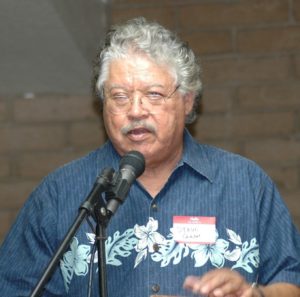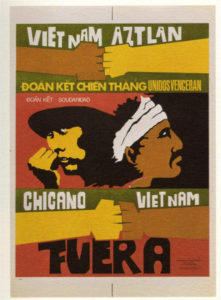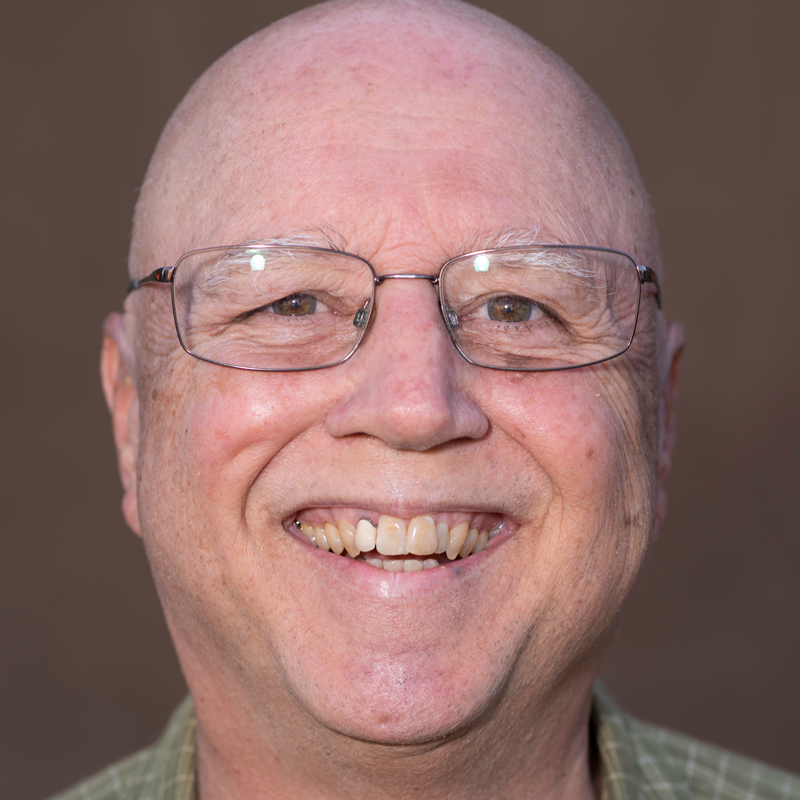
By Stan Santos
On Aug. 31, 2013, a historic event was held at the Sal Mosqueda Community Center in Fresno. “Chicano History Revisited: Fresno County” was the first of what organizers hope will become a yearly gathering of elders and youth to share their experiences and learn from the victories and defeats of another era. The event, which was attended by more than 250 persons, was more like a family reunion that alternated between a celebration and a touching memorial to those who gave of themselves and have now passed on. The focus was on the period 1966–1971, a time of turmoil and awakening that many identify as the early years of the “Chicano Movement.”

“Events of the Struggle”
The program opened with an invocation by Pastor Eliezer Risco, which was followed by the American Indian Veterans Association Color Guard, with planning committee member Lorenzo Santos Vega, also known as “Silver Fox.” This was followed by a slide show, “Events of the Struggle,” which was assembled by Matt Espinoza Watson, Latino Studies professor at Fresno City College, and narrated by Steve Santos, who was able to name individuals involved and provide contextual information. The slides captured many important moments of the period, including the upheaval that took place at Fresno State around the closure of the La Raza Studies program in 1970. Risco was the head of the program when it was abruptly shut down by the administration, which labeled the staff as “radicals.” La Raza Studies was reinstated at Fresno State later that year due to intense community pressure.
Another important image was that of Catarino Hurtado, who headed the Fresno Brown Berets and was considered an emerging leader of the time. Hurtado was also the target of law enforcement authorities who used paid informants in attempts to entrap him with weapons and other illegal activities. Although their efforts were not successful, Hurtado’s life was tragically cut short in an automobile accident.
The presentation also portrayed the struggle of the United Farm Workers (UFW) and their organizing efforts, including the Gallo Boycott and their historic march to Sacramento. The presentation was punctuated by the powerful image of more than 1,000 antiwar protestors who marched in the Chicano Moratorium against the war in Vietnam.
Chicano History Revisited then unfolded with loosely scripted and free flowing panel discussions that engaged the audience in thoughtful analysis of three different periods. Panel 1 covered 1966–1967 and was presented by Dr. Ramon Chacon, Dr. Jorge Garcia and Hope Lopez. Dr. Chacon wrote an important paper titled “A Case Study of Ghettoization and Segregation: West Fresno’s Black and Chicano Community during the 1970s.” He gave an animated talk of life in West Fresno during that time. Dr. Garcia was one of the professors fired by Fresno State during the turmoil. Lopez was another community activist and supporter of the UFW who has served on various boards and organizations dating back to the days of the War on Poverty under President Lyndon B Johnson.
 The second panel, which presented 1968–1969, comprised Dr. Lea Ybarra, Raul Pickett, Risco and Lilly Torres. Dr. Ybarra, who came from a family of “Chavistas” of the Sanger area, attended Fresno State, went on to obtain her doctorate and returned to become director of Latino Studies. She was widely known and liked and, due to her professional achievements, is considered an example for rural Chicanas who aspire to higher education. Pickett was also influenced by the farmworker movement; his parents were staunch supporters and his brother, Manuel, worked with the internationally known Teatro Campesino. Pickett was a leader of the Movimiento Estudiantil Chicano de Aztlan (MEChA) at Fresno State and continued to work in the community after college. He relived some critical moments of change for the gathering.
The second panel, which presented 1968–1969, comprised Dr. Lea Ybarra, Raul Pickett, Risco and Lilly Torres. Dr. Ybarra, who came from a family of “Chavistas” of the Sanger area, attended Fresno State, went on to obtain her doctorate and returned to become director of Latino Studies. She was widely known and liked and, due to her professional achievements, is considered an example for rural Chicanas who aspire to higher education. Pickett was also influenced by the farmworker movement; his parents were staunch supporters and his brother, Manuel, worked with the internationally known Teatro Campesino. Pickett was a leader of the Movimiento Estudiantil Chicano de Aztlan (MEChA) at Fresno State and continued to work in the community after college. He relived some critical moments of change for the gathering.
The last panel discussed 1970–1971 and comprised Santos, Jose Luis Barraza and Dr. Teresa Perez. Santos and Barraza were key participants in the Fresno State uprising, and both went on to work in various nonprofit and governmental agencies and community organizations. While working at the Fresno County Community Action Agency, Santos formed a parent group known as the Asociación Educativa de Padres Mexicanos. This group was the catalyst for the development of parent leaders and advocates for the children of Spanish-speaking families in Fresno and surrounding communities. Santos went on to chair the Mexican American Political Association or MAPA Del Valle. During the 1970s, Dr. Perez was a professor at Fresno State while her husband, Manuel Perez, was the director of the Educational Opportunity Program. Their daughter, Sallie Perez Saiz, inspired by the achievements of her parents, became active in the planning of the program.
 A Memorial to Those Who Have Passed
A Memorial to Those Who Have Passed
Another important moment came with the presentation of excerpts from The Latino Legacy, a film project by the Fresno Unified School District and the Center for Multicultural Cooperation. The video tells the stories of several community leaders, including Sanger native and political activist Hector Abeytia, dedicated educator Julia Balderas, union leader Marcelo Salcido and attorney Gilbert Lopez, all of whom contributed to the huge strides that the Chicano community has made, and who have passed in recent years. The film also includes sections on Judge Mario Olmos, who was killed in an automobile accident; UFW leader Jessie De La Cruz; and restaurant pioneer Sal Salazar. Sadly, De La Cruz passed away two days after Chicano History Revisited.
 The Planning Committee
The Planning Committee
The organizers of Chicano History Revisited are community leaders and volunteers, many of whom were personally involved in the struggles of that period. Gloria Hernandez, an early organizer with the UFW and later with California Rural Legal Assistance, brought forward the concept of Chicano History Revisited. The planning meetings were chaired by Eddie Varela of El Concilio de Fresno with input from Santos, a former activist with MAPA, and Barraza, a former chair of MEChA and currently the head of the Housing Alliance of Fresno. Graciela Ramirez of Fresno City College was another key member, as well as Irene Serrano, who provided photo documentation of the grueling planning sessions and during the event and created the Facebook page.
Where Do We Go from Here?
The planning committee thanks the volunteers and community for their support; as the date approached, the committee grew in numbers and is now looking forward to planning for the future. This includes the vital task of preserving articles and items that were provided for archiving. They are reaching out to individuals who could provide expertise in this function.
The Chicano Movement grew in power and influence over the years and made significant achievements in the areas of education, income levels and political representation. However, there remain huge challenges in the distribution of resources, environmental justice, immigration reform, healthcare, law enforcement, the prison system, the preservation of culture and the quality of life. Standing on the shoulders of those who went before, the leaders of tomorrow are poised to take their place. The insights and powerful lessons derived from events such as Chicano History Revisited will provide the foundation.
The committee continues to meet at 5:30 p.m. each Thursday at the Chicano Youth Center (1515 Divisadero). For more information and to confirm meeting times, contact Varela at eddiev@elconciliodefresno.org or Hernandez at iwapgh@aol.com.
*****
Stan Santos is an activist in the labor and immigrant community. Contact him at ssantos@cwa9408.org.

